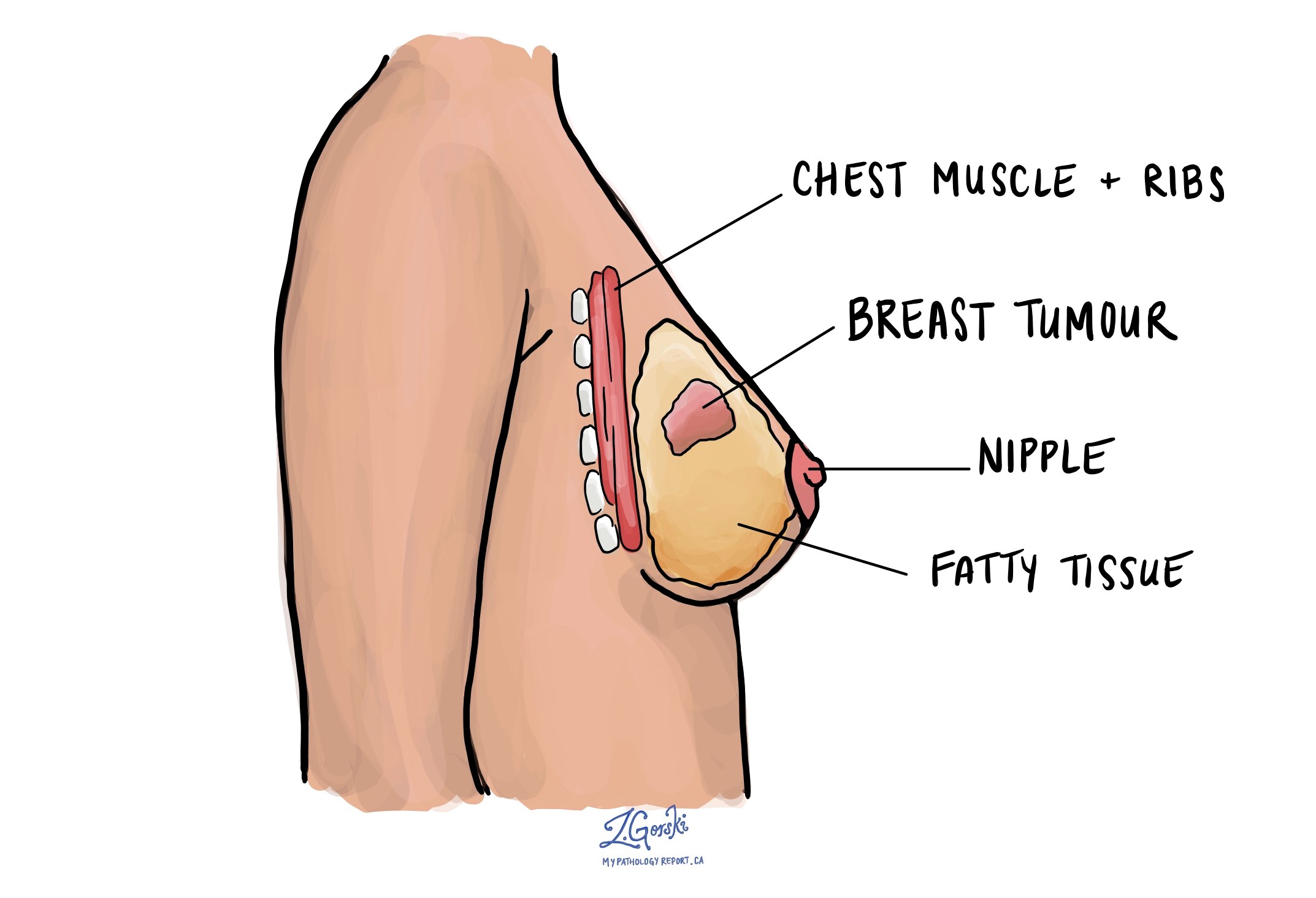by Jason Wasserman MD PhD FRCPC
June 3, 2022
What is breast cancer?
Breast cancer is a general term used to describe a group of malignant (cancerous) tumours that develop from cells normally found in the breast. A malignant tumour is made up of abnormal cells that have the ability to invade surrounding tissues and spread to other parts of the body.

The most common types of breast cancer including invasive ductal carcinoma and invasive lobular carcinoma start from cells normally found inside the system of ducts and lobules in the breast. Other less common types of breast cancer in this group include tubular carcinoma, cribriform carcinoma, mucinous carcinoma, mucinous cystadenocarcinoma, invasive micropapillary carcinoma, carcinoma with apocrine differentiation, and metaplastic carcinoma.

What is the difference between non-invasive and invasive breast cancer?
In non-invasive breast cancer, all of the tumour cells are located inside the ducts and lobules. In invasive breast cancer, the tumour cells have broken out of the ducts and lobules and have spread into the surrounding tissue. The most common type of non-invasive breast cancer is ductal carcinoma in situ (DCIS). If left untreated, patients with DCIS have a high risk of developing invasive ductal carcinoma. Lobular carcinoma in situ (LCIS) is a similar condition, however, the risk of developing breast cancer is lower compared to DCIS.

How is breast cancer diagnosed?
For most patients, breast cancer is diagnosed after a small tissue sample is removed in a procedure called a biopsy. The tissue sample is then sent to a pathologist who examines it under the microscope. By examining the tissue under the microscope, the pathologist can determine the type of breast cancer and can order any additional tests that may help guide your care. Depending on the type of tumour, another procedure may be performed to remove the entire tumour. Lymph nodes from the axilla (armpit) may be removed at the same time to look for any tumour cells that have spread to a lymph node.
What genetic syndromes increase the risk of developing invasive ductal carcinoma of the breast?
Some genetic syndromes are also associated with an increased risk of developing breast cancer. If you or a family member have been diagnosed with breast and ovarian cancer syndrome (BRCA1 and BRCA2), Cowden syndrome (PTEN), Peutz Jegher syndrome (STK11), or Li-Fraumeni syndrome (p53), you should talk with your doctor about your risk for developing breast cancer.



